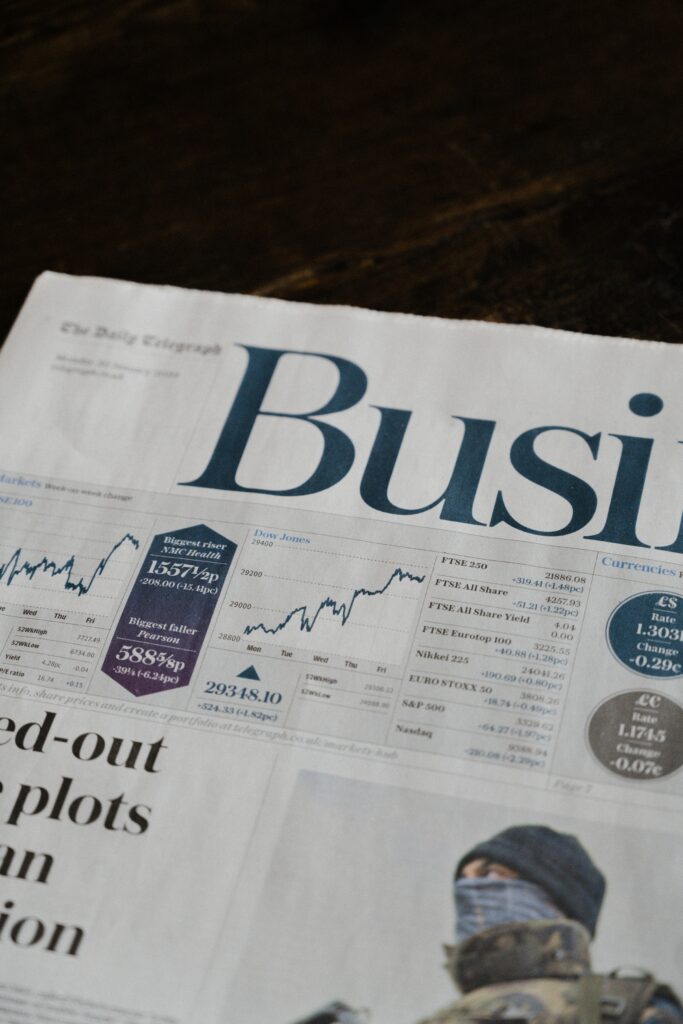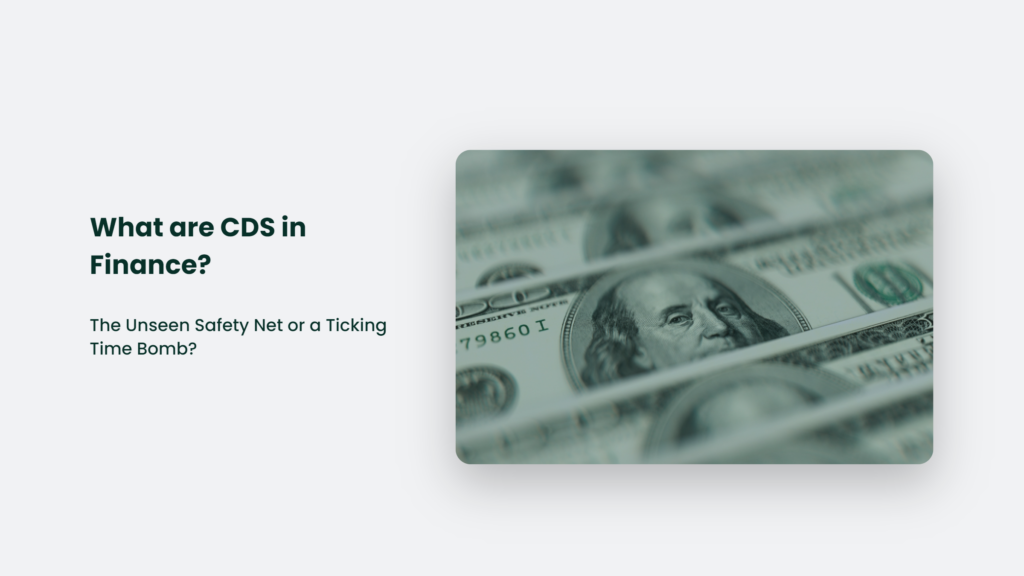

What are CDS in Finance? The Unseen Safety Net or a Ticking Time Bomb?

As Seen On
Let’s dive into the world of finance, where the waters are often murky, and the creatures lurking beneath the surface can be as fascinating as they are terrifying. Today’s topic of discussion? Credit Default Swaps (CDS). Now, don’t let your eyes glaze over just yet. I promise this will be more exciting than watching the paint dry.

What are CDS in Finance?
Imagine you’re a lender. You’ve just handed over a hefty sum to a borrower, and now you’re biting your nails, hoping they’ll pay you back. Enter the credit default swap, your financial knight in shining armour. A CDS is a type of derivative that allows you to swap or offset your credit risk with another investor’s. It’s like an insurance policy that pays out if the borrower defaults on their debt.
But here’s the kicker: you don’t have to own the debt to buy a CDS. You can simply bet on whether a borrower will default or not. It’s like betting on a horse race without owning any horses. Sounds crazy, right? Well, welcome to the world of finance.
The Good, the Bad, and the Ugly of Credit Default Swaps
Credit default swaps can be used for hedging, speculation, or arbitrage. They can provide a safety net for lenders, allowing them to sleep a little easier at night. But they can also be used to make risky bets, leading to financial chaos. Remember the 2008 financial crisis? Yeah, credit default swaps played a starring role in that debacle.
But let’s not throw the baby out with the bathwater. Credit default swaps can also be used for arbitrage, which involves buying a security in one market and selling it in another to profit from price differences. It’s like buying a cheap knockoff of a designer handbag and selling it as the real deal. It’s not exactly ethical, but it’s a dog-eat-dog world out there.
The Rollercoaster Ride of Credit Default Swaps
The history of credit default swaps is a rollercoaster ride of ups and downs. They were invented in 1994 and became popular in the early 2000s. By 2007, the outstanding value of CDS was a whopping $62.2 trillion. But then the 2008 financial crisis hit, and the value of CDS plummeted to $26.3 trillion by 2010.
The crisis exposed the dark underbelly of credit default swaps. They were used to insure complex financial products, and when the market crashed, the fallout was catastrophic. It was like a game of musical chairs, and when the music stopped, there weren’t enough chairs to go around.
The Aftermath: Regulation and Reform
After the financial crisis, regulators stepped in to clean up the mess. The Dodd-Frank Wall Street Report Act of 2009 was introduced to regulate the CDS market. It phased out the riskiest swaps and prohibited banks from using customer deposits to invest in swaps and other derivatives.
But despite these reforms, credit default swaps are still a significant part of the financial landscape. In 2023, the estimated size of the U.S. CDS market was over $4.3 trillion.
That’s a lot of money riding on whether borrowers will pay back their debts.
Frequently Asked Questions:
What triggers a credit default swap?
The CDS provider must pay the swap purchaser if the underlying investment, usually a loan, is subject to a credit event.
Is a credit default swap legal?
Yes, credit default swaps are legal. The Securities and Exchange Commission and the Commodity Futures Trading Commission regulate them under the Dodd-Frank Act.
What are the benefits of credit default swaps?
Credit default swaps are beneficial for two main reasons: hedging risk and speculation. They allow investors to protect a bond from defaulting on its payments, and they also allow investors to bet on the credit quality of the reference entity.
The Bottom Line:
So there you have it, folks. The wild, wacky world of credit default swaps. It’s a high-stakes game of risk and reward, where fortunes can be made or lost in the blink of an eye. But remember, in the world of finance, there’s no such thing as a sure bet. So tread carefully, and may the odds be ever in your favour.
Konger
Up until working with Casey, we had only had poor to mediocre experiences outsourcing work to agencies. Casey & the team at CJ&CO are the exception to the rule.
Communication was beyond great, his understanding of our vision was phenomenal, and instead of needing babysitting like the other agencies we worked with, he was not only completely dependable but also gave us sound suggestions on how to get better results, at the risk of us not needing him for the initial job we requested (absolute gem).
This has truly been the first time we worked with someone outside of our business that quickly grasped our vision, and that I could completely forget about and would still deliver above expectations.
I honestly can't wait to work in many more projects together!
Disclaimer
*The information this blog provides is for general informational purposes only and is not intended as financial or professional advice. The information may not reflect current developments and may be changed or updated without notice. Any opinions expressed on this blog are the author’s own and do not necessarily reflect the views of the author’s employer or any other organization. You should not act or rely on any information contained in this blog without first seeking the advice of a professional. No representation or warranty, express or implied, is made as to the accuracy or completeness of the information contained in this blog. The author and affiliated parties assume no liability for any errors or omissions.

